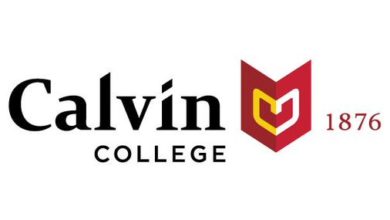You have acceptances to at least two colleges. You think that you will likely pursue medical school no matter what college you go to. If you are deciding between colleges a as potential premed, what factors should you be considering?
*These first three factors are pretty much equally important. One will take priority over another based on your individual situation.
Ranking
Although your colleges rank in US News is not incredibly important when it comes to medical school admissions, ranking still does matter. Most people who start college as pre-med do not actually end up going to medical school. You do not want to be in a situation where you go to a much lower ranked school to save money and live closer to home because you are planning to go to medical school and then all of a sudden, you decide that medicine is not right for you. This is a terrible situation because you could have gone to a higher ranked school that would have been better for future job opportunities outside of medicine. Unfortunately, this happens frequently.
IRead More: Private vs Public School As a Pre-Med
Cost
Medical school is expensive. The average debt that medical students graduate with is roughly $160,000. With that being said, if you are going to college and paying your tuition and other costs with loans, it is not a wise idea to go to a school that costs $50,000 per year. Taking out hundreds of thousands of dollars of loans for college and medical school may not seem like a big deal but having that much debt plus interest can seriously negatively impact life after graduating from medical school. On the other hand, if you end up paying a lot of money for an Ivy League education and decide not going to medical school, it might have actually been worth it to spend all that money because your undergraduate degree is really going to matter when you are job hunting. When choosing your college, carefully consider you and your family’s financial situation in addition to how dedicated you are to a career in medicine.
Location
Prospective college students often either want to live very far from their family or very close. Location determines what kind of opportunities you will have, weather, family support, and number of distractions. Do you want to live in or near a big city? Or do you want to be in a smaller college town? Do you want to be close to family so you can see them frequently? Can you handle the four seasons? Even though we live in a global society, our location still significantly affects our experience no matter where we go.
IRead More: How to Choose Your Major as a Premed
Student to faculty ratio
Are you someone who easily gets lost in a crowd? Do you think you will have a difficult time developing a relationship with a faculty member in order to get a letter of recommendation? Can you handle large class sizes? Taking a class with 100 other people vs 400 can make a big difference in your college experience. You have to ask yourself where you think you have a higher chance of thriving. Some students love being part of a smaller community and some students find that suffocating. Private schools tend to have lower student to faculty ratios but they also tend to be more expensive.
Opportunities
Different colleges offer different extracurricular activities. Students love going to big schools because they offer a wide array of opportunities such as clubs, research, sports, work-study, etc. If you’re pre-med, going to a school that’s close to an academic hospital is very important because that’s where you would do your volunteering and shadowing. You can also meet clinician-researchers at the nearby hospital. Some schools are known for their research prowess. You can take advantage of that as a premed as well.
As you can see, making the decision to go to the “right” university is difficult. It is a multifactorial decision and highly depends on what your priorities are. Keep these five main factors in mind when you make your choice.



